March 13 stands as one of history’s most eventful days, witnessing the rise and fall of empires, groundbreaking discoveries, and moments that shaped our modern world across centuries of human achievement.

Politics and Government Events on March 13
1920 – The Kapp Putsch Briefly Ousts Weimar Republic Government
Right-wing extremists led by Wolfgang Kapp seized control of Berlin, forcing the democratic Weimar government to flee the German capital. The putsch attempted to overthrow the fragile republic established after World War I.
A general strike organized by trade unions and civil servants ultimately defeated the coup within days. The failed putsch exposed the deep political instability plaguing Germany’s young democracy.
1979 – New Jewel Movement Ousts Grenada’s Prime Minister
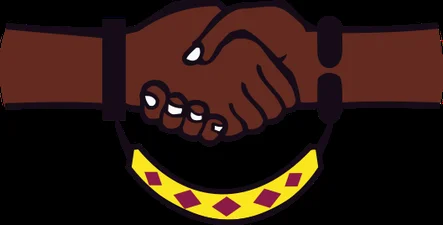
Maurice Bishop’s revolutionary movement successfully overthrew Prime Minister Eric Gairy in a bloodless coup d’état. The New Jewel Movement promised socialist reforms and greater independence from Western influence.
Bishop’s government would transform Grenada’s political landscape until the tragic events of 1983. The coup marked the beginning of a tumultuous period in Caribbean politics.
2013 – Cardinal Bergoglio Elected Pope Francis
The papal conclave selected Argentine Cardinal Jorge Mario Bergoglio as the 266th Pope of the Catholic Church. He chose the name Francis, honoring the patron saint of the poor and nature.
Pope Francis became the first Jesuit pope and the first from the Americas. His election signaled the Church’s recognition of its global southern membership.
2020 – President Trump Declares COVID-19 National Emergency

President Donald Trump formally declared the COVID-19 pandemic a national emergency in the United States. The declaration unlocked federal emergency powers and resources to combat the spreading virus.
The announcement marked a pivotal moment in America’s pandemic response. Markets and public health officials welcomed the belated federal recognition of the crisis.
2020 – Greece Swears In First Female President

Katerina Sakellaropoulou took the oath as Greece’s first female president amid strict COVID-19 safety protocols. The former Council of State president brought extensive judicial experience to the largely ceremonial role.
Her historic inauguration occurred during unprecedented global circumstances. Sakellaropoulou’s appointment represented a significant milestone for gender equality in Greek politics.
Military and Naval History on March 13
1940 – Winter War Ends with Moscow Peace Treaty
Finland and the Soviet Union officially concluded the brutal Winter War after signing the Moscow Peace Treaty. The conflict had raged for over three months in harsh Arctic conditions.
Finland ceded significant territory but maintained its independence against overwhelming odds. The war demonstrated Finnish military prowess and exposed Soviet tactical weaknesses.
1954 – Battle of Điện Biên Phủ Begins
Viet Minh forces under General Võ Nguyên Giáp launched a massive artillery barrage against the French fortress. The battle would prove decisive in ending French colonial rule in Vietnam.
The siege lasted 56 days and culminated in a stunning Vietnamese victory. This defeat effectively ended the First Indochina War and French presence in Southeast Asia.
1957 – Cuban Students Storm Presidential Palace
Revolutionary students launched a daring assault on President Fulgencio Batista’s palace in Havana. The bold attack aimed to assassinate the dictator and spark a general uprising.
The mission failed with heavy casualties among the student attackers. However, their sacrifice galvanized opposition to Batista’s regime and inspired future revolutionary efforts.
Science and Discovery Milestones on March 13
1930 – Lowell Observatory Announces Pluto’s Discovery

Lowell Observatory officially announced the discovery of Pluto to the scientific community and world. Clyde Tombaugh had spotted the distant celestial body after months of painstaking photographic analysis.
The discovery completed the search for “Planet X” that Percival Lowell had begun decades earlier. Pluto’s identification expanded humanity’s understanding of the outer solar system.
1969 – Apollo 9 Returns After Testing Lunar Module

The Apollo 9 crew safely splashed down in the Atlantic Ocean after successfully testing the Lunar Module in Earth orbit. The mission validated critical systems needed for the upcoming moon landing.
Astronauts practiced complex docking procedures and emergency protocols essential for lunar operations. This successful test cleared the path for Apollo 11’s historic moon landing.
2003 – Ancient Hominid Footprints Identified in Italy

Scientists published findings in Nature identifying the Ciampate del Diavolo as 350,000-year-old hominid footprints. The discovery provided rare evidence of ancient human ancestors’ movement patterns.
The volcanic ash preserved these prehistoric tracks in remarkable detail. These footprints offered unprecedented insights into early human migration and behavior.
1989 – Space Shuttle Discovery Launches with TDRS-4
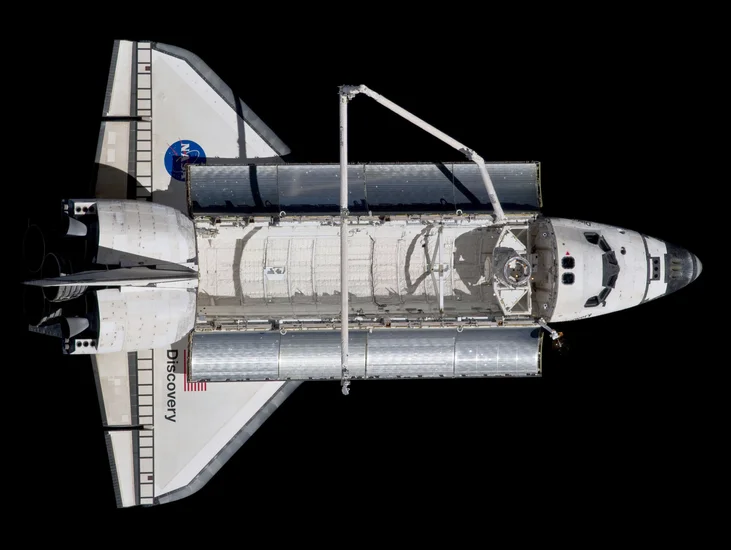
Space Shuttle Discovery lifted off on mission STS-29 carrying the advanced TDRS-4 communications satellite. The mission supported NASA’s expanding space communications network.
The successful deployment enhanced global satellite communications capabilities. Discovery’s crew completed several important scientific experiments during the five-day mission.
Cultural and Arts Events on March 13
1964 – Kitty Genovese Murder Sparks Bystander Effect Research

Kitty Genovese was brutally murdered in New York City in an attack that would reshape social psychology. Initial false reports claimed numerous witnesses failed to help her.
The case prompted extensive research into the “bystander effect” and social responsibility. Later investigations revealed the original reporting was largely inaccurate, but the psychological studies remained influential.
1996 – Dunblane Massacre Shocks Scotland

A gunman killed sixteen primary school children and their teacher in Dunblane, Scotland’s deadliest mass shooting. The tragedy devastated the small Scottish community and horrified the nation.
The massacre led to strict gun control legislation in the United Kingdom. Public outrage and grassroots campaigns resulted in comprehensive firearms restrictions.
1997 – Sister Nirmala Chosen to Succeed Mother Teresa
The Missionaries of Charity selected Sister Nirmala as their new leader following Mother Teresa’s death. The quiet nun faced the enormous challenge of continuing Mother Teresa’s global humanitarian work.
Sister Nirmala had worked alongside Mother Teresa for decades among Calcutta’s poor. Her selection maintained continuity in the organization’s mission to serve the world’s most destitute.
Religious and Social Events on March 13
1943 – German Forces Liquidate Kraków Jewish Ghetto
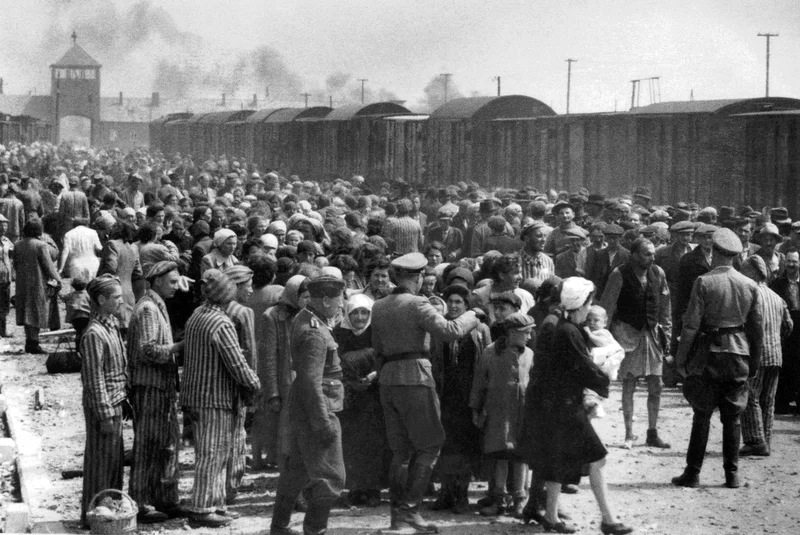
Nazi forces systematically destroyed the Jewish ghetto in Kraków, murdering thousands of innocent civilians. The liquidation represented another horrific chapter in the Holocaust’s systematic genocide.
Survivors were transported to concentration camps or executed on the spot. The ghetto’s destruction eliminated one of Poland’s most historic Jewish communities.
2020 – Breonna Taylor Killed by Police in Louisville

Police officers fatally shot Breonna Taylor during a botched raid at her Louisville apartment. The 26-year-old emergency medical technician was sleeping when officers forcibly entered her home.
Her death sparked nationwide protests against police brutality and racial injustice. The case became a rallying cry for criminal justice reform and accountability.
2016 – Ankara Bombing Kills 37 People

A devastating car bomb exploded in Ankara, Turkey’s capital, killing at least 37 people and injuring dozens more. The attack targeted a busy transportation hub during evening rush hour.
Kurdish militants claimed responsibility for the deadly bombing. The attack highlighted Turkey’s ongoing struggle with internal security and regional terrorism.
Business and Economic Events on March 13
1992 – Devastating Earthquake Strikes Eastern Turkey

A magnitude 6.6 earthquake devastated the Erzincan region of eastern Turkey with severe intensity. The powerful tremor caused widespread destruction and significant casualties.
The earthquake highlighted Turkey’s vulnerability to seismic activity along major fault lines. International aid efforts mobilized quickly to assist affected communities.
1993 – Storm of the Century Batters Eastern United States

A massive winter storm dumped feet of snow across the eastern United States in what meteorologists called the “Storm of the Century.” The superstorm affected millions from the Gulf Coast to Canada.
The blizzard caused unprecedented disruption to transportation, commerce, and daily life. Economic losses from the storm reached billions of dollars across multiple states.
2012 – Sierre Coach Crash Claims 28 Lives

A tragic bus accident in Switzerland killed 28 people, including 22 children returning from a school ski trip. The coach crashed into a tunnel wall, devastating families across Belgium.
The accident prompted extensive safety reviews of tourist transportation throughout Europe. The tragedy highlighted the need for improved vehicle safety standards.
Transportation and Infrastructure on March 13
1988 – Seikan Tunnel Opens Between Japanese Islands

The Seikan Tunnel, the world’s longest tunnel with an undersea segment, opened connecting Honshu and Hokkaido. The engineering marvel stretched over 33 miles beneath the treacherous Tsugaru Strait.
Construction took over two decades and overcame enormous technical challenges. The tunnel revolutionized transportation between Japan’s main islands and boosted economic development.
1974 – Sierra Pacific Airlines Flight 802 Crashes

Sierra Pacific Airlines Flight 802 crashed into California’s White Mountains near Bishop, killing all 36 people aboard. The twin-engine aircraft encountered severe weather conditions during its approach.
The crash highlighted the dangers of mountain flying in adverse weather. Investigation findings led to improved safety protocols for regional aviation.
2016 – Grand-Bassam Hotel Attacks Kill 19

Three gunmen attacked two hotels in the Ivory Coast resort town of Grand-Bassam, killing at least 19 people. The coordinated assault targeted Western tourists and local civilians.
Al-Qaeda claimed responsibility for the beach resort attacks. The violence demonstrated terrorism’s reach into previously safe West African destinations.
Sports and Recreation on March 13
1995 – Baseball Legend Al Rosen Dies

American baseball player and manager Al Rosen passed away, ending a distinguished career in professional baseball. He had been a standout third baseman and later successful executive.
Rosen broke barriers as one of baseball’s prominent Jewish players in the 1950s. His leadership skills translated successfully from the playing field to the front office.
2021 – Boxing Champion Marvelous Marvin Hagler Dies

Marvelous Marvin Hagler, the legendary middleweight boxing champion, passed away at age 66. The southpaw dominated the middleweight division throughout the 1980s with his aggressive style.
Hagler’s epic battles with Sugar Ray Leonard and Roberto Durán defined an era of boxing. His unexpected death shocked the sports world and boxing community.
2021 – Motorsport Commentator Murray Walker Dies
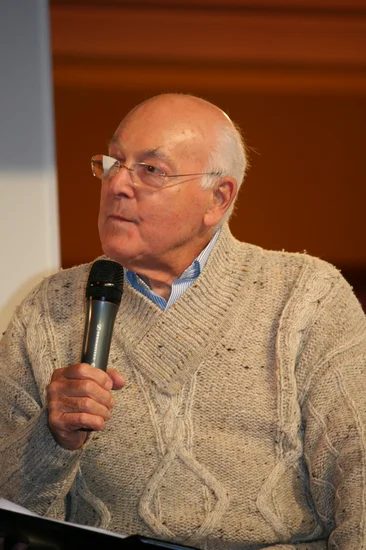
Legendary Formula 1 commentator Murray Walker died at age 97, ending an era of motorsport broadcasting. His enthusiastic commentary style made him the voice of Formula 1 for generations.
Walker’s passionate delivery and occasional verbal mistakes endeared him to racing fans worldwide. His death marked the end of motorsport’s most recognizable broadcasting voice.
Notable Births on March 13
1911 – L. Ron Hubbard Born
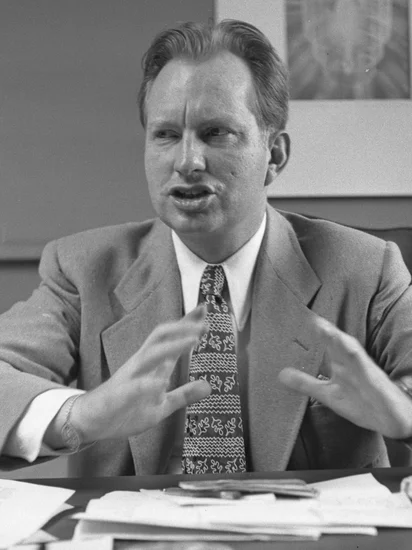
American author L. Ron Hubbard entered the world, destined to become one of the most controversial religious figures of the 20th century. His early life showed signs of the creativity and ambition that would define his career.
Hubbard would later found the Church of Scientology, attracting millions of followers worldwide. His writings on dianetics and human potential sparked both devoted followings and fierce criticism.
1920 – Comcast Co-founder Ralph Roberts Born
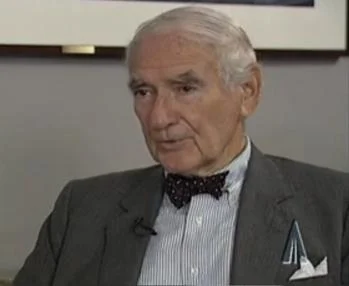
American businessman Ralph J. Roberts was born, future co-founder of telecommunications giant Comcast Corporation. His entrepreneurial vision would revolutionize American cable television and internet services.
Roberts built Comcast from a small cable company into one of America’s largest media conglomerates. His business acumen helped shape the modern telecommunications landscape.
1925 – Jazz Legend Roy Haynes Born
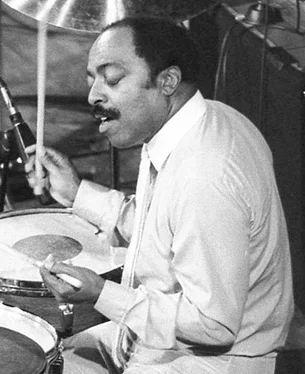
American drummer and composer Roy Haynes was born, destined to become one of jazz’s most influential percussionists. His innovative drumming style would define modern jazz rhythm for decades.
Haynes performed with jazz legends including Charlie Parker, Miles Davis, and John Coltrane. His longevity and creativity made him a bridge between jazz’s classic and contemporary eras.
1939 – Singer-Songwriter Neil Sedaka Born
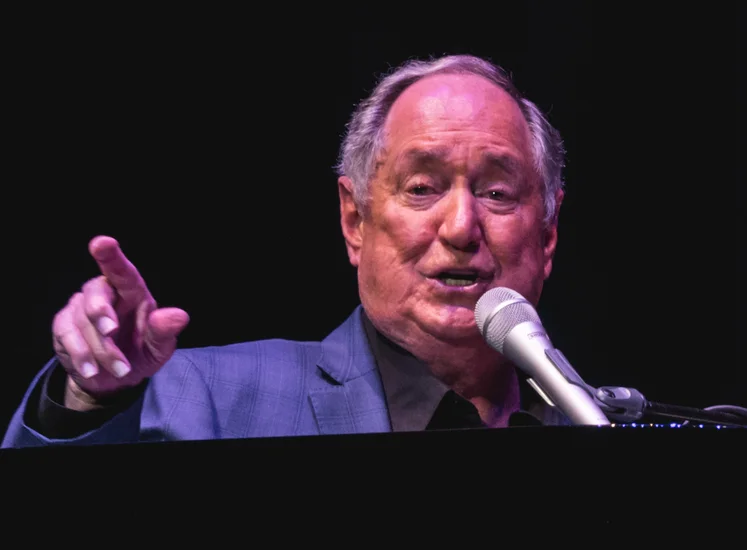
American singer-songwriter and pianist Neil Sedaka was born in Brooklyn, New York. His melodic pop sensibility would make him one of the most successful songwriters of the rock era.
Sedaka wrote numerous hit songs including “Calendar Girl” and “Breaking Up Is Hard to Do.” His piano-driven compositions helped define the sound of early 1960s pop music.
1946 – Actor William H. Macy Born

American actor, director, and screenwriter William H. Macy was born in Miami, Florida. His distinctive character acting would earn him critical acclaim across film and television.
Macy’s breakthrough role in “Fargo” established him as a master of darkly comic performances. His versatility allowed him to excel in both dramatic and comedic roles throughout his career.
1950 – Physician-Journalist Charles Krauthammer Born

American physician, journalist, and author Charles Krauthammer was born in New York City. His unique perspective as both medical professional and political commentator would influence public discourse.
Krauthammer became one of America’s most respected conservative columnists and television commentators. His articulate analysis of politics and foreign policy earned him a Pulitzer Prize.
1956 – Actress Dana Delany Born

American actress and producer Dana Delany was born in New York City. Her dramatic range would make her one of television’s most accomplished performers.
Delany’s starring role in “China Beach” earned her two Emmy Awards and established her as a leading dramatic actress. Her career spanned decades across television, film, and theater.
1960 – U2 Bassist Adam Clayton Born

English-Irish musician and songwriter Adam Clayton was born in Chinnor, England. His bass playing would anchor one of rock music’s most successful and influential bands.
Clayton co-founded U2 with his Dublin schoolmates and helped create their distinctive sound. The band’s global success made them one of the best-selling rock acts in history.
1972 – Rapper Common Born

American rapper and actor Common was born in Chicago, Illinois. His conscious rap style would earn him critical acclaim and Grammy Awards throughout his career.
Common’s socially conscious lyrics and smooth delivery distinguished him in hip-hop’s competitive landscape. His acting career further expanded his artistic influence beyond music.
1995 – Olympic Skier Mikaela Shiffrin Born

American alpine skier Mikaela Shiffrin was born in Vail, Colorado. Her exceptional talent would make her one of the most successful ski racers in Olympic history.
Shiffrin dominated slalom and giant slalom events, winning multiple Olympic gold medals. Her technical precision and competitive drive redefined women’s alpine skiing excellence.
Notable Deaths on March 13
1901 – President Benjamin Harrison Dies
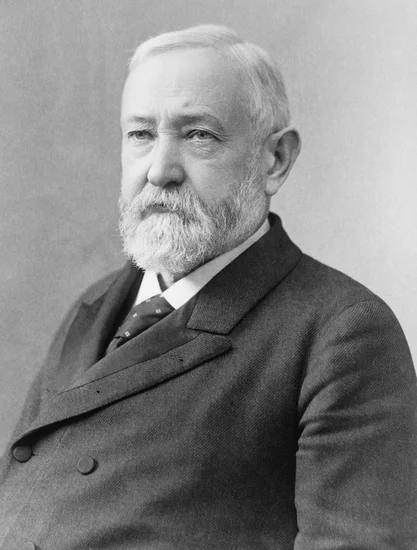
Benjamin Harrison, 23rd President of the United States, died of pneumonia in Indianapolis at age 67. His presidency had been marked by significant tariff legislation and expansion of the Navy.
Harrison’s administration oversaw the admission of six new states to the Union. His death ended the political career of a man who had served with distinction in both war and peace.
1906 – Women’s Rights Pioneer Susan B. Anthony Dies

Susan B. Anthony, the legendary women’s suffrage activist, died at age 86 in Rochester, New York. Her tireless advocacy for women’s voting rights had spanned more than five decades.
Anthony’s arrest for voting illegally in 1872 became a rallying cry for the suffrage movement. Her death came fourteen years before the 19th Amendment granted women the right to vote.
1938 – Legendary Lawyer Clarence Darrow Dies

Clarence Darrow, America’s most famous defense attorney, died at age 80 in Chicago. His brilliant legal mind and passionate advocacy for the underdog had made him a national icon.
Darrow’s defense of John Scopes in the famous “Monkey Trial” had made him a symbol of intellectual freedom. His death marked the end of an era in American legal history.
1975 – Nobel Prize Winner Ivo Andrić Dies
Yugoslav novelist, poet, and short story writer Ivo Andrić died at age 82 in Belgrade. His literary works exploring Balkan history and culture had earned him the Nobel Prize in Literature.
Andrić’s masterpiece “The Bridge on the Drina” captured the complex ethnic tensions of his homeland. His death removed one of the 20th century’s most significant Balkan voices.
1996 – Acclaimed Director Krzysztof Kieślowski Dies
Polish director and screenwriter Krzysztof Kieślowski died at age 54, cutting short one of cinema’s most promising careers. His profound films explored moral and philosophical themes with unprecedented depth.
Kieślowski’s “Three Colors” trilogy and “The Dekalog” series established him as a master of European cinema. His premature death robbed the film world of a singular artistic voice.
2006 – Actress Maureen Stapleton Dies

American actress Maureen Stapleton died at age 80, ending a distinguished career spanning theater, film, and television. Her powerful dramatic performances had earned her an Academy Award and multiple Tony Awards.
Stapleton’s raw emotional honesty made her one of America’s most respected character actresses. Her death marked the passing of a true artist who elevated every production she graced.
2022 – Oscar Winner William Hurt Dies
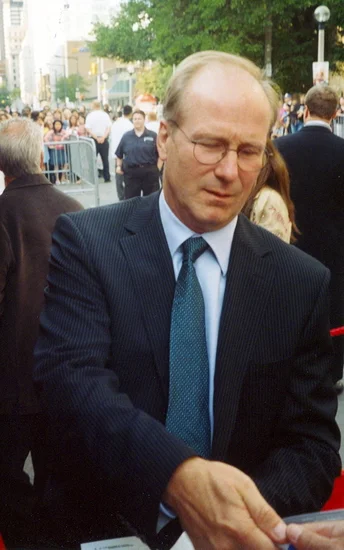
American actor William Hurt died at age 71, ending a career marked by intense, introspective performances. His method acting approach had earned him an Academy Award and multiple nominations.
Hurt’s roles in films like “Kiss of the Spider Woman” and “Children of a Lesser God” showcased his remarkable range. His death removed one of his generation’s most thoughtful and committed performers.
Holidays and Observances on March 13
National Elephant Day in Thailand
Thailand celebrates National Elephant Day, honoring the country’s revered national animal and cultural symbol. The observance highlights conservation efforts and the elephant’s historical significance in Thai culture.
Traditional ceremonies and educational programs mark this important day across the kingdom. The holiday emphasizes the need to protect Thailand’s remaining wild elephant populations.
Africa Scout Day Celebrated Across the Continent

Scouting organizations throughout Africa commemorate Africa Scout Day, celebrating the movement’s growth and impact across the continent. The observance promotes youth development and community service.
Local scout groups organize special activities and community service projects. The day reinforces scouting’s role in developing future African leaders and citizens.
Kasuga Matsuri at Nara’s Ancient Shrine

The Kasuga Grand Shrine in Nara, Japan, celebrates the annual Kasuga Matsuri festival. This ancient Shinto celebration honors the shrine’s deities with traditional ceremonies and processions.
Thousands of stone and bronze lanterns illuminate the shrine grounds during the festival. The celebration maintains traditions that have continued for over a thousand years.
